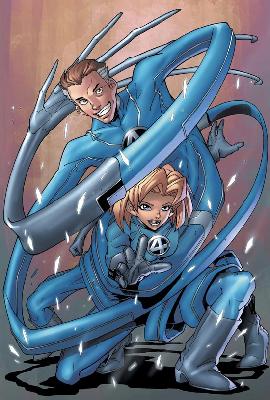Turn Your Quivering Nerves in My Direction
What’s up with Scots and psychedelia anyway? I decided to take a night off Grant Morrison to seam up the shirt I’ve been knitting and generally lounge around, which meant I finally got to watch my new copy of The Incredible String Band movie, Be Glad for the Song Has No Ending. My mother watched, alternately amused and chagrined by her own memories, since it was her records that had made me a fan of the band in the first place. In fact, I’m not only a fan of the String Band, but I think many of the musicians I’ve come to like since share common traits with them, most notably Robyn Hitchcock and Rose Polenzani.
But I felt like a fool watching a movie that far predates me of a band that disbanded before I was born, because my first thought was, “They look so young!” And they were young and blooming with exuberance and honesty and songs I love, making it an endearing movie. One thing I noticed quickly was the way my relationship to The Psychedelic has changed since I was a teenager. Then I was mostly put off by the idea of drug use, which hasn’t particularly changed, but there wasn’t any of that visible in the film anyway, and I don’t know to what extent it was a part of their reality. Instead what I realized is that I’d been intrigued and repelled by psychedelic imagery because some of the ideas resonated with me but they were couched in what seemed to be nonsense gibberish. And at that point I realized I hadn’t avoided thinking about Morrison at all.
See, stories in which magical drug insights give a character (or author, I suppose) insight into reality-as-it-is always seemed unsatisfying to me. Morrison seemed to undercut the sincere spirit journey version in Animal Man with all the scenes in The Invisibles that suggest that while you can believe you’ve taken a drug, you can never trust yourself to believe you’re in reality. New X-Men has an awkward anti-drug slant, and drugs other than sex and reality seem to be basically absent from The Filth, which is odd. OK, they’re not absent, but they’re not consciousness-altering either. Tony needs his cat medicine, though what medicine and for what condition is both unclear and crucial. And the president has to take drugs to become a crack whore, so I’m not sure if that means the drugs he takes bring him into closer contact with his real self or not. And then there’s the medical marijuana sequence at the end, in which a guy who nearly killed himself while stoned prolongs his painful status quo (and maybe dulls the pain) with more drugs. So apparently I was crazy in thinking drugs don’t figure in much, but it still seems odd to me that drugs don’t show up more in the filth of the world than they do. I guess it’s still significant that they don’t seem to bring any extra awareness or sensitivity and that just living “normally” clouds your mind too.
What I found revealing about Be Glad was that contrary to what I’d gathered from their songs, The Incredible String Band didn’t believe there were lots of gods in the world. They believed they were gods, creating for their own enjoyment and amusement, and audience was of little concern. I like being ignored like that, because it means they don’t bother to pander to me. It might be that this is what Grant Morrison does too. Some readers think what he does is just playing with whatever he finds intriguing at the time, and I can’t totally disagree. I just think I have enough overlap that the ideas remain interesting without so much that I find them trite, but I guess the question is whether this matters to Morrison. It only matters to me inasmuch as I’ve described; the way he writes is interesting to me, and so I stay interested, not very exciting. And sometimes I think he fails completely at synthesizing things, and that’s interesting too. But while The Incredible String Band was not commercial (or at least I hope they didn’t have commercial aspirations, since their fame was fleeting) and could stand to say heartfelt but unhelpful things to Newsweek interviewers, beaming while their girlfriends embroidered tunics in the background, Morrison is making a real living writing comics and doing fairly well. Does this mean he has an obligation to give his audience what it wants? My standard answer when this question arises in comics is that that would be a horrible idea, because I really don’t want to see Wolverine battling a set of breasts the size of Connecticut. But obviously Morrison has to take audience into account to some degree if he wants to make any money, and I really don’t know how he or others manage this.
So I didn’t talk about The Filth much, but that’s because this was a night to think about what it means to be creating a good world in art and in life. I’m never sure I’m up to it, but there also doesn’t seem to be an acceptable alternative. And there’s another gnomic statement you can use to sum up The Filth. Perhaps I ought to start collecting them, and maybe that would be a start.
And I bid you good night.
